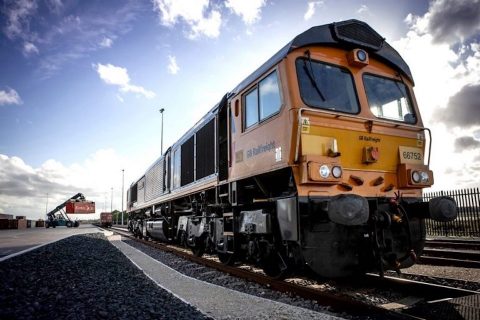DB Cargo, losses after tax and poor punctuality overshadow DB Group results

The Deutsche Bahn Group published its annual results, announcing a positive operating result and being back in the black. Yet, behind the positive headlines, there are not-so-positive takeaways from the results, such as a loss-making freight division, poor punctuality and a loss after tax for the group. In fact, DB is headed for steep operational losses in the current financial year.
DB logistics subsidiary DB Schenker generated an operating profit of 1,8 billion euros in 2022, DB’s annual results show. DB Schenker’s record profit helped push the DB Group operating result to 1,3 billion euros and, thus, back to black. A significant increase in the number of passengers also contributed to the positive results.
Nevertheless, the case is different for rail freight subsidiary DB Cargo which continued to struggle. The company was able to improve revenues compared to the previous year but did not manage to close 2022 with a profit for its mother company. DB Cargo noted an operational loss of 600 million euros, attributed mainly to difficult operating conditions and additional expenses.
‘2022 marks turning point’
DB’s overall punctuality also reached a new low in 2022, with only 65,2 per cent of long-distance trains on time, compared to 75,2 per cent the year before. Germany’s infrastructure is also struggling to cope with demand, with DB saying that it is “too old, too prone to failure and doesn’t have enough capacity”. Finally, while the company’s earnings after tax are improving, 2022, too, marks a year of losses (-227 million euros).
The impact thereof was not lost on Lutz. “The past year marks a turning point. It has become clear to everyone involved: We have to change course and approach the renovation and modernisation of the infrastructure in a completely different way.”
CFO Levin Holle also cautioned against too much optimism. “In a difficult environment in 2023, we have to ensure that we bring DB’s costs and income into a sustainable balance. This also includes reasonable wage agreements that are affordable for the company”. Earlier this week, DB was hit with one of the largest strikes in recent history, bringing train traffic to an almost complete standstill last Monday due to a wage conflict with the unions. For the current financial year, DB is bracing for an operational loss of around 1 billion euros.
Also read:






Short of redundancy, visavi load (edge…) now railways has turned a too risky, a low qual. mode.
(Now single option for added load is longer trains, which not is sustainable!)
Neither core clients, nor anybody now affords luxury of not caring about On Time supplies, etc. Accordingly:
• Electrification has to be redundant.
• Track, not only has to be with safe margins for load allowed, but redundant, thus as well sustaining future, by Market, requested, added load etc.
A shift is needed!